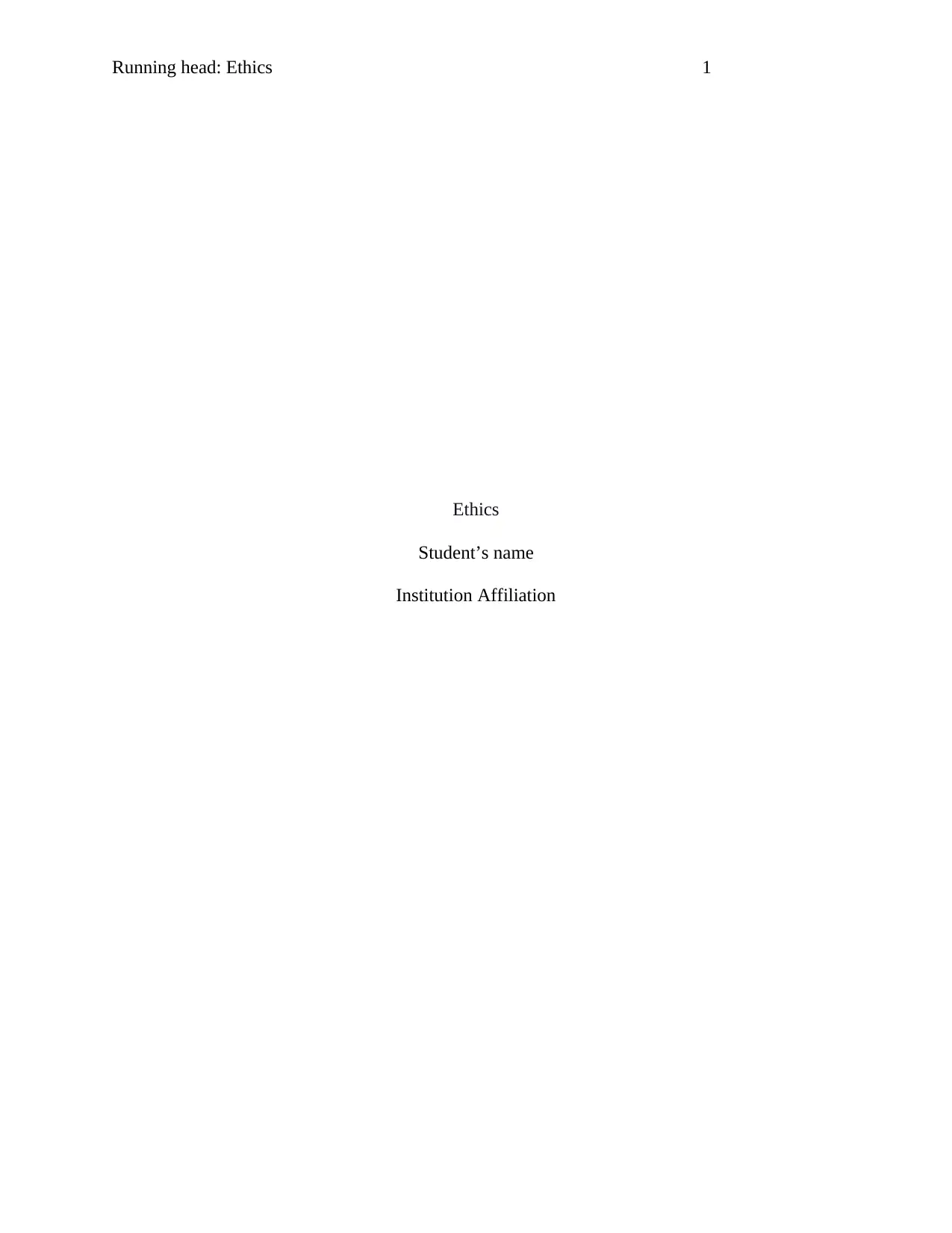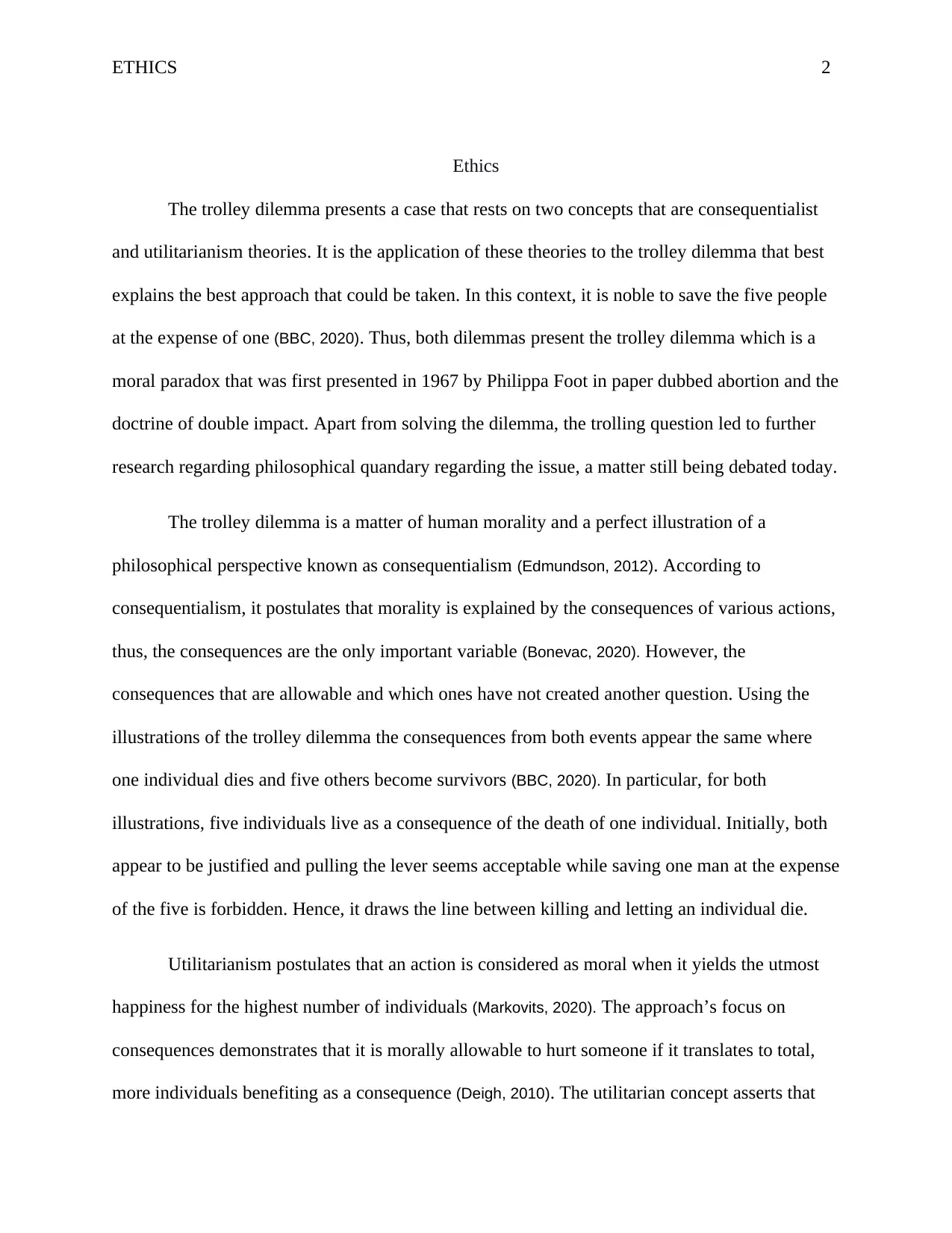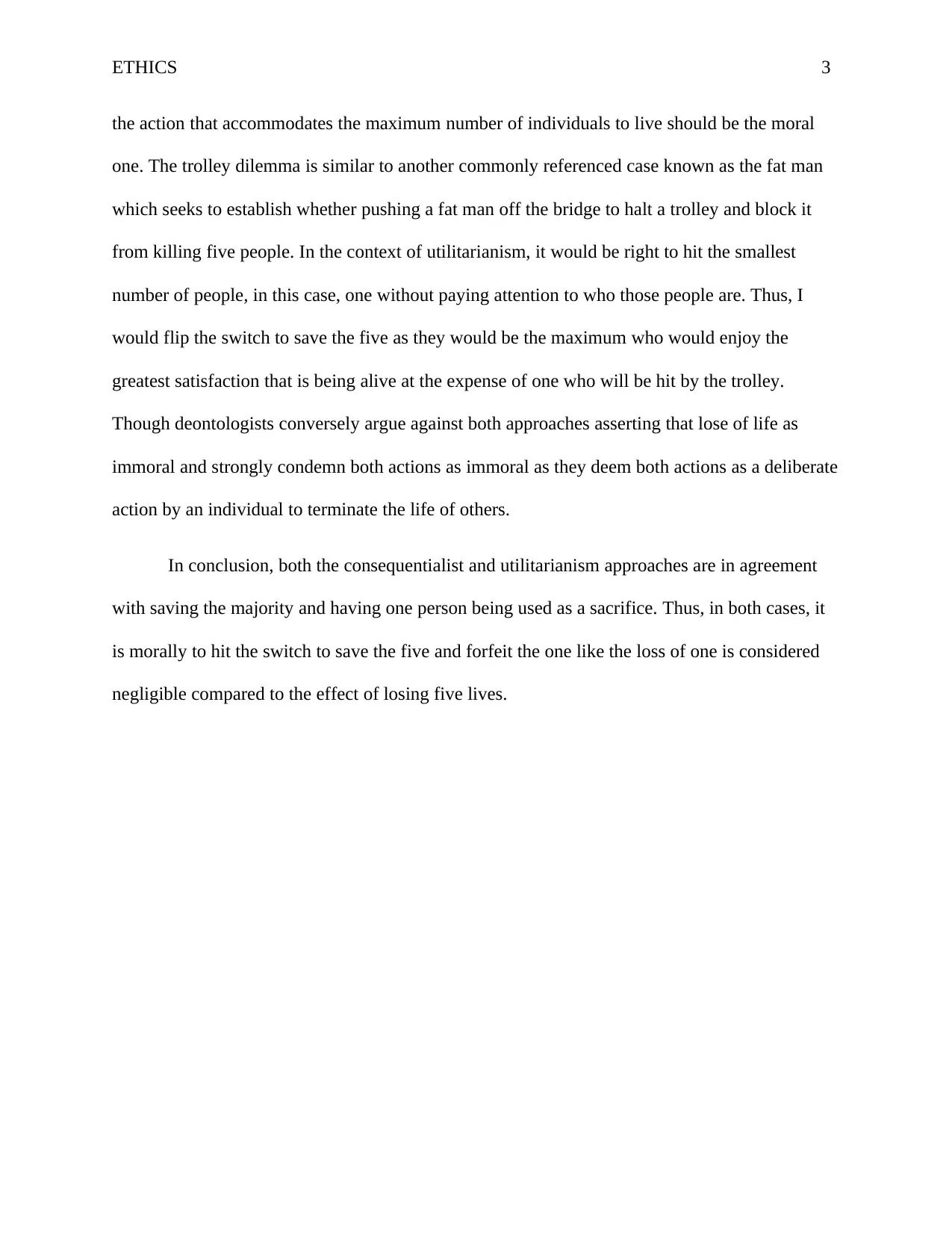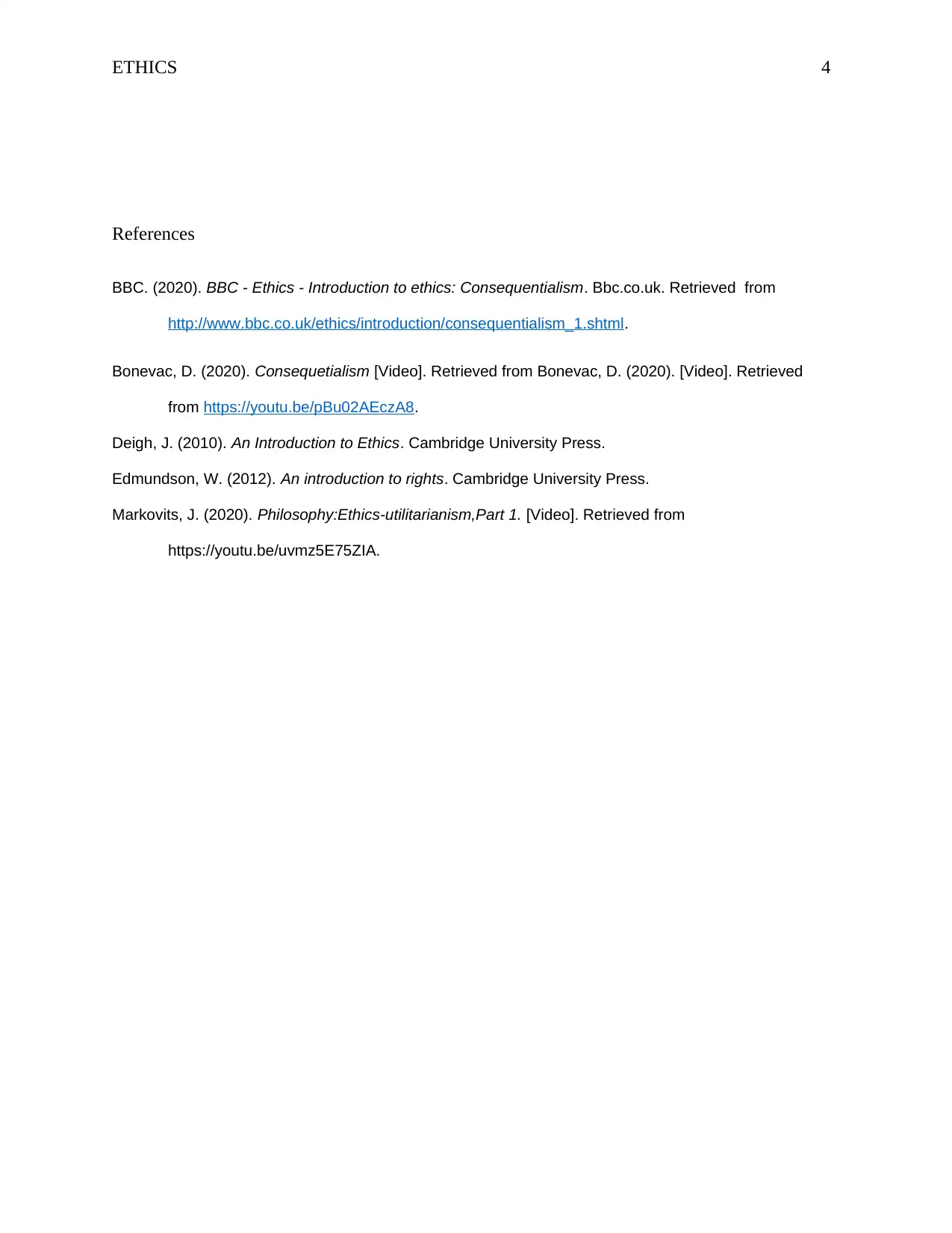Ethics 10 Essay: Consequentialism, Utilitarianism, and Trolley Dilemma
VerifiedAdded on 2022/09/16
|4
|714
|18
Essay
AI Summary
This essay explores the Trolley Dilemma, a thought experiment in ethics, examining the application of consequentialism and utilitarianism. The essay explains the core concepts of these theories and their relevance to the dilemma, where a choice must be made between saving a larger number of lives at the cost of one. The analysis highlights the consequentialist perspective, which prioritizes outcomes, and the utilitarian principle of maximizing overall happiness. The essay discusses how these theories provide justification for sacrificing one life to save five, contrasting this with deontological viewpoints that condemn such actions. The essay also references similar ethical scenarios like the fat man problem and concludes by reinforcing the consequentialist and utilitarian stance in the Trolley Dilemma, where the loss of one life is considered negligible compared to saving multiple lives.
1 out of 4







![[object Object]](/_next/static/media/star-bottom.7253800d.svg)